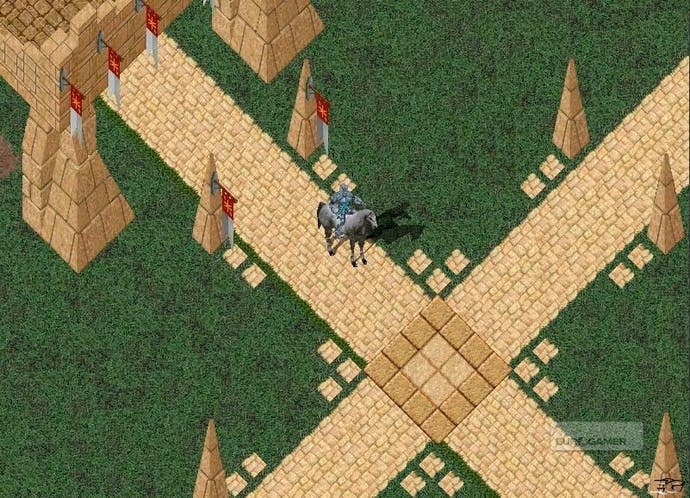Metaplace's Raph Koster
The MMO legend on the now-defunct Metaplace and the future of virtual worlds.
Metaplace is a mass-market kind of product, not something just for programmers. It was designed to be as easy to use as The Sims. That makes it a pretty different proposition. Most of our users are ordinary folks, not webmasters, and most of them don't embed their worlds anywhere - they just hang out in them and invite their friends over.
Definitely. The range of possible virtual-world spaces is as wide as, well, the range of possible real-world spaces. Larger, in fact! But instead, we see convergence towards just a very few uses. Even in the games space, where you would think we would see all sorts of games that could make use of large multi-user spaces, we see a rather depressingly limited array of offerings. Massively multiplayer games went mainstream to the gamer audience clear back in 1997. So we're talking a dozen years, and we still mostly have elves in tights slaying dragons. At least in Asia we have seen a broader array of types of titles, but yeah, I do think the Western market has been really quite limited.

You walk through the build gate in Metaplace Central, or add a new world using a button on our website. After a brief loading screen, you are logged into a new world. It doesn't have much in it, and it isn't very large, but you're done. It has chat, avatars, a world to walk in. You can make it bigger, re-sculpt the map - the tools are a lot like SimCity in that regard - import or purchase items or even behaviours, add game mechanics or serious stuff.
After that, it's a question of how much time you want to spend making it really yours. If you just want a hangout, you can have the basics of one in under five minutes.
Metascript is pretty powerful. Some examples of what people have done: RPG combat systems, real-time whiteboards, Twitter clients, puzzle games, 2D vehicle physics, quest systems, full adventure games... the scripting system is Lua, like World of Warcraft's UI system, only event-driven. So you write the code to handle a click on something, or code that goes off on a regular timer, that sort of thing.

Not for most users. You don't need to script that stuff: once one person makes it and puts it on the market, it's available for everyone. As an example, if you want to make an adventure game, and you want stuff like pressure plates, passworded doors, switches, dialogue trees, and other common components, all that stuff exists already, and you can just get the "adventure game theme pack" off the market - it's a collection of all that stuff. And you don't need to know how to program to use it, either. It's all pretty much menu-driven and filling out text fields.